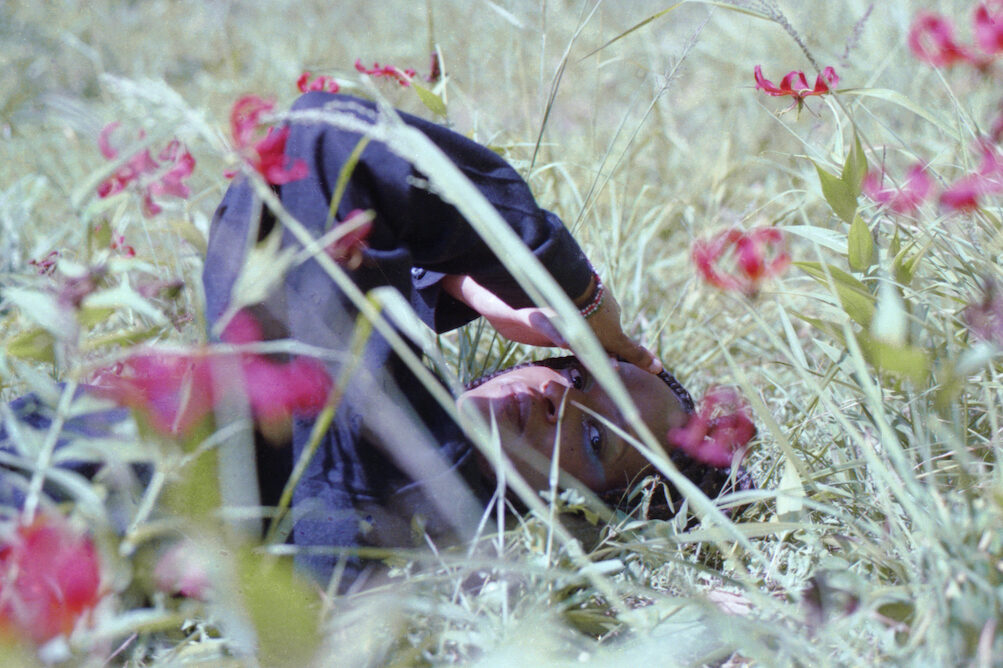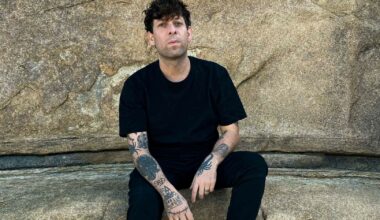Nyokabi Kariũki is a Kenyan composer and performer based between Maryland, New York, and Nairobi. Her sonic imagination is ever-evolving, with compositions ranging from classical contemporary & experimental music, to film, choral, pop, and explorations into sound art, electronics, and (East) African musical traditions. She embraces the title of composer-performer often, possessing a wealth of performance experience as not only a classically-trained pianist of 16+ years, but also as a vocalist and most recently as a player of several instruments from the African continent, including the mbira and djembe. Her art seeks to bridge her diverse influences — from her penchant for experimentation & improvisation, to her African upbringing and Western classical training — together into a mélange of accessible, evocative, and meaningful art.
FACTS
1. James Baldwin — “The place in which I’ll fit will not exist until I make it.”
2. One about me: I was born on the same day as Bartolomeo Cristofori. He invented the piano; my instrument.
3. May the fourth be with you.
QUESTIONS
1. What is the biggest inspiration for your music?
Home. Home as many things: place(s), language(s), feeling(s), literature, colours, visual art, music, people I love, people I don’t know, music.
2. How and when did you get into making music?
My Mum sent me off for Western classical piano lessons at the age of 5 or 6, and I just went with the flow. Then, I remember composing a little ‘something in F major’ on the piano when I was 9, but it didn’t register to me that I was ‘making music’. (This makes me wonder if I’ve always been ‘making music’, maybe even before I started piano lessons — but just never had the vocabulary to validate the act. Who knows?)
3. What are 5 of your favourite albums of all time?
Wish You Were Here – Pink Floyd
Good Kid, M.A.A.D City – Kendrick Lamar
Long Way Down – Tom Odell
Pirates Choice – Orchestra Baobab
If You Wait – London Grammar
The Prince of Egypt (Original Soundtrack)
(these are 6, whoops)
4. What do you associate with Berlin?
I visited Berlin on a school trip about history when I was in Year 11, and I remember we took a walk through a park. The path was lined with these vividly stunning trees — their leaves were a fiery yellow colour. There’s something about that image that stuck with me.
Also, as a hub for experimental art. (I hope to return soon and see how true this is.)
5. What’s your favourite place in your town?
This may be a little cliché, but my favourite place in Nairobi is home. Right now, I’m answering these questions while sitting outside on the veranda, with the view of my piano in front of me, the sound of football wafting from the television inside, and the cool breeze tugging at my hair. It’s such a warm day today.
6. If there was no music in the world, what would you do instead?
I cannot — or maybe don’t want to — imagine a world without music.
7. What was the last record/music you bought?
Last week, I bought a vinyl of ‘Electric Africa’ by Manu Dibango at a very cool record store named Real Vinyl Guru in Nairobi.
8. Who would you most like to collaborate with?
Hmm. I don’t think about this often, I’m not sure why. But I’d love to collaborate with Dev Hynes. And also a string orchestra. And Kelsey Lu. Perhaps also, Kendrick Lamar. And Billie Eilish. Now that I’m thinking about this, it’s starting to feel like I’d just want to collaborate with everyone whose music I adore.
9. What was your best gig (as performer or spectator)?
I saw Tom Odell at Webster Hall in New York in 2017 (I believe). He and his band are electric performers. Chills throughout; was on a high from the music for hours after that.
My best gig as a performer — hmm. This is interesting. In a way, I’d say my junior recital (May 2019), which was a requirement for my degree in music composition. It was a very pivotal moment for me, as it was the first time I presented my music within the context of its own self. Because previously, I had only performed in concerts that were programming multiple composers, which was always strange because I found myself comparing — not necessarily in terms of whether it was “good” or “bad”, but particularly in terms of constantly wondering, “Where does my music fit in? And why does it feel like it’s not fitting in?”
So during my junior recital, having that freedom to define that context of how my music was to be experienced, and to organise that experience from start to finish, meant that the music just fit in. Everything made sense. This therefore turning point for me as a composer and as a performer, because I felt newly confident that I could create a space for myself and for my music.
10. How important is technology to your creative process?
I’ve worked with electronics in my music before, but not like I do now. I used to view it as an accessory that could simply ‘decorate’ acoustic concert music, or something I had to begrudgingly ‘figure out’ because I was interested in film scoring. I think on both counts, my feelings were this way because exploring technology in my music felt like a giant beast that was too mathematical for my liking; too complicated.
However, the pandemic completely shifted the way I saw technology’s role in my music. For so long I’d written music with the concert stage in mind, but suddenly the stage disappeared, and so I shifted to thinking about writing music that could offer a fulfilling experience when listened to not on a stage. Suddenly, ‘low quality’ audio from old phone videos that I’d take casually during holidays were not something to store away, but a new instrument to explore. If acoustic instruments couldn’t be recorded in a studio, the peculiarities that came out of at-home recording equipment became musical elements that could be explored — sampled, distorted, stretched, manipulated, processed, or perhaps even, left alone. Technology started to make my music-making feel open and limitless. It felt (and continues to feel) like something that agrees with, and not stifles, the intuitive nature of my music-making process. I’m excited to see where it takes me.
11. Do you have siblings and how do they feel about your career/art?
I just asked my 20-year old [younger] brother, who actually also makes music — afropop music — this question. He said, “Weird. Your music is so weird. It’s beyond comprehension. But I guess…it’s working.”
nkariuki.com | orcd.co/nkequatorsong


